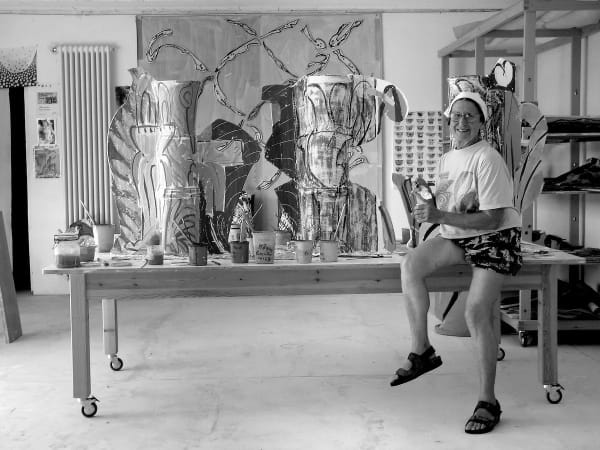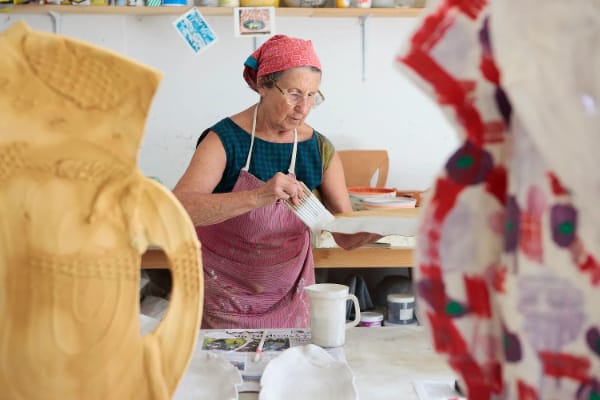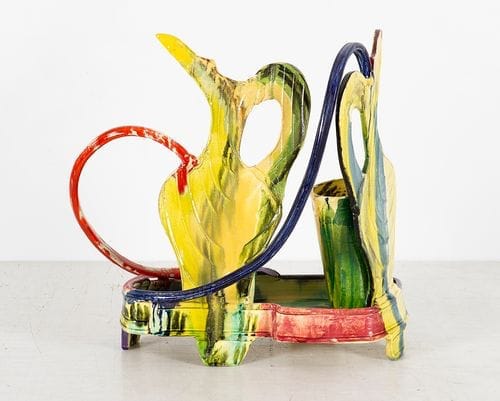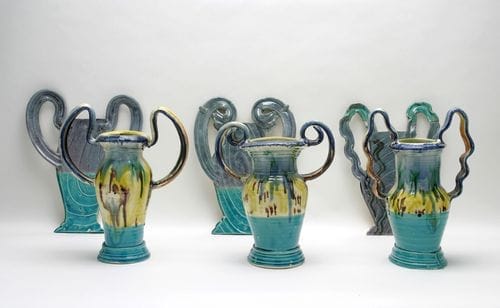
Betty Woodman (1930–2018) was a pioneering American ceramic artist renowned for her innovative approach that blurred the lines between craft, sculpture, and painting. Born Elizabeth Abrahams in Norwalk, Connecticut, she was raised in Newton, Massachusetts. Her journey with ceramics began at the age of 16, leading her to study at the School for American Craftsmen at Alfred University from 1948 to 1950.
During her many years in Boulder, Colorado she was known for her active participation in the community pottery scene and as a graduate advisor in the Ceramics department at the University of Colorado. As a young BFA student at the University I remember her energy and whirlwind style of arriving and departing the studios. She seemed immense and unstoppable. It was good to see a woman that was fully participating in art, life, and motherhood, unafraid, confident and articulate. You can read more and see a video at this link: https://www.groundworksartlab.org/betty-woodman
In honor of Woodman and her legacy at CU and in the Boulder community, the university created the Betty Woodman Fund in 2023 to support emerging ceramics artists and faculty professionals in the ceramics program. The fund also provides stipends for the Woodman Artists Residency, which provides one to two artists the opportunity to stay and create art for several weeks in the former home of Betty and her husband George Woodman, located in the rural Tuscan region of Italy.

In 1951, Woodman embarked on a transformative trip to Italy, where she apprenticed with Giorgio Ferrero and Lionello Fallacara in Fiesole. This experience deeply influenced her aesthetic, drawing inspiration from Italian majolica, Mexican pottery, and Tang dynasty figures.
Woodman’s career evolved from functional pottery in the 1950s to expressive works that challenged traditional boundaries. Her signature “pillow pitchers” exemplify this evolution, combining utility with sculptural form. She also played a pivotal role in establishing the Boulder Pottery Lab in Colorado during the 1950s, fostering a community space for ceramic arts.
Her contributions to the arts were widely recognized. In 2006, the Metropolitan Museum of Art in New York hosted a retrospective of her work—the first for a living female ceramicist. Woodman received numerous accolades, including fellowships from the National Endowment for the Arts and honorary doctorates from institutions like the Rhode Island School of Design.

Woodman’s personal life was intertwined with art. She married artist George Woodman in 1953, and their children, Francesca and Charles, also pursued artistic careers. Tragically, Francesca, a talented photographer, passed away in 1981.

Betty Woodman’s legacy endures through her groundbreaking work that redefined ceramics as a dynamic art form, inspiring future generations to explore the intersection of function and expression.
